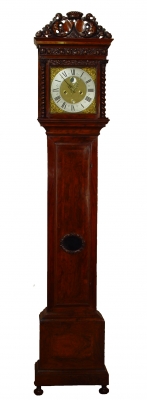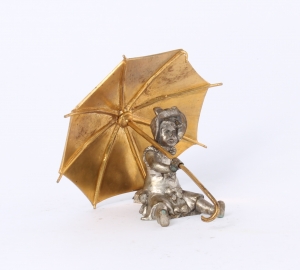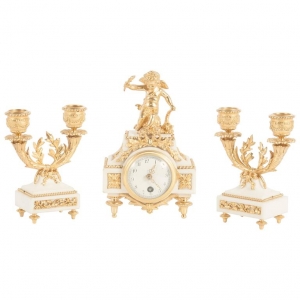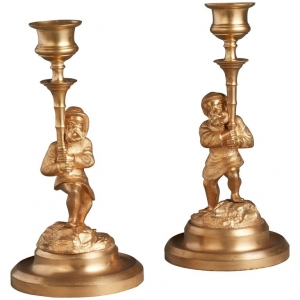Longcase clocks
An early Dutch walnut veneered and carved longcase clock, by Huijgens, circa 1690
Make an inquiry
- Title
- An early Dutch walnut veneered and carved longcase clock, by Huijgens, circa 1690
- Description
-
Square 11-inch brass dial with matted centre and silvered engraved chapter ring signed Huijgens Amsterdam. Very elaborate foliate pierced and engraved hands with alarm disc. Ringed winding holes and apertures for date and moon phase. In the corners well cast and chiseled gilt brass cherub spandrels. 8-day weight driven movement with anchor escapement and outer countwheel Dutch half hour striking on two alternating bells. Alarm on the large bell. Very elegant walnut veneered case with flat molded hood surmounted by a elaborately carved cresting. There is similar carving to the freeze and sides of the hood. To the front corners there are full twisted columns with finely carved capitals and quarter columns to the hind corners. The rectangular trunk has a long molded door with a crossbanded veneered panel and an oval carved lenticle. A similar panel to the base of the clock which is raised on bun feet.
Early Dutch longcase clocks are rare because the production of these only started around 1680. It were the English that had developed the type who introduced it to Holland. Of course the first longcase clocks that were made resembled the English examples. But soon some Dutch influences start to appear which give these clocks a whole unique character. Especially the carved details with all their heraldic connotations make some of these clocks stand out. Not all clocks from this period have this carving by far and it seems to have been the most luxurious cases that were to be made.
With their comparably low height and subtle carved details they are a quiet statement of refinement and taste.
- Signature
- Huijgens Amsterdam
- Dimensions
- 215 x 46 x 28 cm
- Reference
- 0206
- Price
- Price on request
- Share













